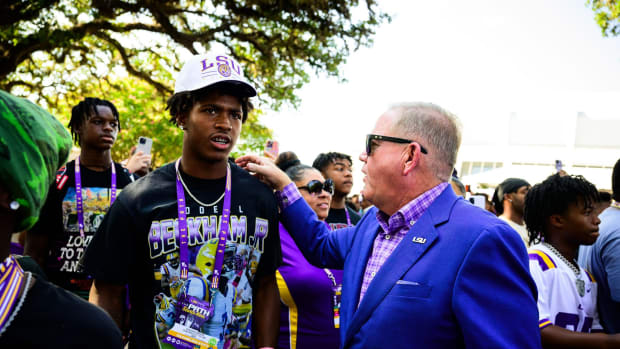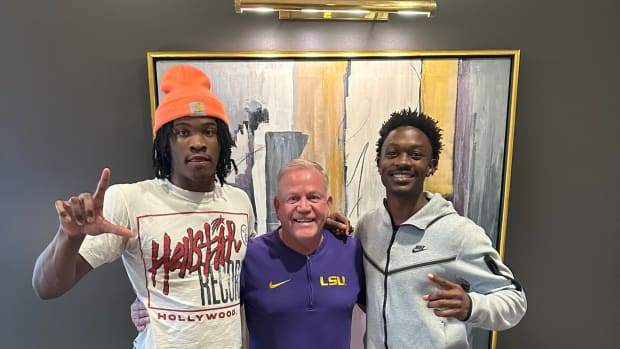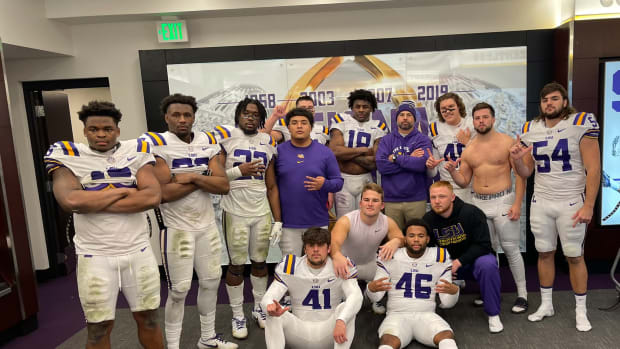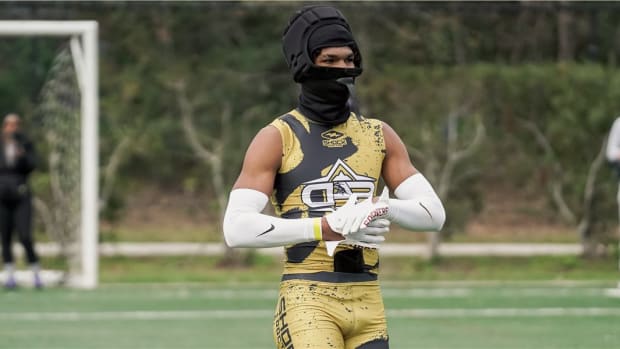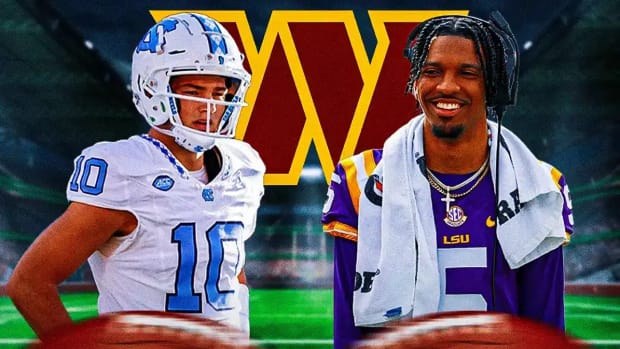If LSU, College Football Returns, What Are A Few In-Season Questions That Must Be Answered?
The events of the last few days have been a dark moment for the future of college football in the fall. The Big Ten, and on Friday the Pac-12, announced decisions to move to an all-conference schedule in 2020.
It's an unprecedented decision that comes on the heels of viral outbreaks of COVID-19 across the country as a last ditch effort to salvage the season. The SEC and its 14 athletic directors will meet on Monday to discuss the future of the 2020 season, according to a report from Sports Illustrated's Ross Dellenger and Pat Forde.
At this time, it's not expected that any final decisions from the most powerful conference in college football will come from the meeting but rather a gauge for commissioner Greg Sankey to hear varying ideas from the AD's.
"At this point, the least likely scenario appears to be a full football schedule that starts on time in September," Dellenger and Forde reported.
As the likelihood of a college football season starting on time grows dimmer by the day, conference leaders still need to prepare for all options. The season could certainly be delayed further into the fall to give the current COVID-19 case spike a chance to plateau.
It would also give the conferences more time to accommodate for a potential monumental schedule shift that will likely take more planning and maneuvering.
If the season is ultimately delayed by a few months, with all-conference outings being the only solution, the in-season questions will still need to be answered.
There are two big questions facing the Division I Football Oversight Committee at this time in regards to in-season protocols according to Dellenger. Those two questions are what will in-season testing look like and what happens when there are in-season game cancellations?
"There are a lot of questions but not a whole lot of answers to those questions," Dellenger says.
One of the main dilemmas the Oversight Committee is trying to attack according to Dellenger is exactly how many players would it take to test positive that would force a team to cancel or forfeit a game. In regards to testing, the conference commissioners were working with the committee in trying to establish exactly what the standards would be on the amount of tests administered.
The problem of course is that different conferences have different protocols and universities within each conference have different levels of funding. For a program like LSU, there are resources for consistent testing. But what about some of the smaller programs that lie outside of the Power-5? They don’t have those resources to consistently test their players.
"We're seeing now with the virus cases being so high with the spikes, that I'm not sure we're going to have any football, let alone conference games," Dellenger said.
At this point the conference commissioners have likely tabled in-season protocols and are facing the more immediate question which is whether a college football season can even take place. The Oversight Committee, which largely consists of various conference athletic directors, are likely focusing on that immediate issue as well.
The SEC from the very beginning wanted to hold off on making any final decisions on a possible delay to the season until the end of July. Sankey reiterated those sentiments in a statement released Thursday after the Big Ten had announced its decision to move forward with all-conference games.
"The Southeastern Conference will continue to meet regularly with our campus leaders in the coming weeks, guided by medical advisors, to make the important decisions necessary to determine the best path forward related to the SEC fall sports," Sankey said in a statement to Sports Illustrated. "We recognize the challenges ahead and know the well-being of our student-athletes, coaches, staff and fans must remain at the forefront of those decisions."
There's still plenty to answer in the next few weeks but to see that the conferences are preparing for every scenario, including in-season protocols, is at least a positive step for a week that saw so much shift in a negative direction.
